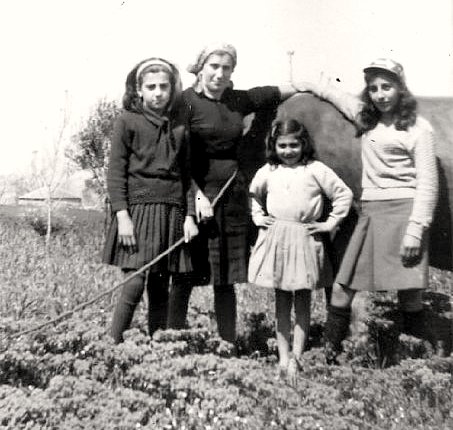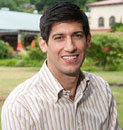
Both of my parents were born in Southern Italy where unemployment is high and quality of life is superb. My mother, A., made it to the 7th grade and my father, T., recieved the equivalent of a technical high school diploma. Both of my parents immigrated to the US in 1975 and are currently debt free, own their own two-family home, and have plenty of cash in savings. They are, in many ways, leading the American dream – by not adopting the principles of American consumerism.
Our “What Italian-Americans Can Teach You About Personal Finance: 10 tips / lessons” below may be be described as “old school” and overly simplistic, but the hard truth is that each tip works! And, moreover, are used frequently by recent immigrants to the United States (and are often forgotten by the 2nd or 3rd generation):
Tip 1: “Save like you have no job and 6 mouths to feed.”
For my parents, saving was akin to a religion. They didn’t save 10 or 20 percent of their paycheck; rather they saved close to half of their take home pay. I suspect the urge to save is an instinctual feeling for many recent immigrants who arrive in a new country with no job and no home. The ability to save such a large percentage of what they made was dependent on controlling how much they spent each week. If you live well below your means you can save a large percentage of your weekly income.
Tip 2: “Look for non-material ways to feel rich.”
My parents have never owned a fancy car or purchased luxury clothes or items. My parents hardly dine out or buy pre-cooked or packaged food. Rather, A. and T. find true fulfillment in family, great food, wine, and visiting the country where they were born. My parents appreciate nice, material things, but they are not defined or fulfilled via acquiring the aforementioned things.
Tip 3: “Use your network for help.”
This means finding an uncle who does plumbing and a cousin who is a paralegal at a law firm. My parent’s family network has helped me, personally, with home improvement, legal advice, emergency situations (taking care of babies or a ride to the hospital), etc. If I had to pay a stranger every time I needed something done in my life, I would not only be broke, but I would lack real friends and family. The real life lesson here is to nurture family relationships and not rush to pay someone to do something for you. (There are other ways to reward people without a large check).
Tip 4: “What’s a credit card?”
If you look at my dad’s wallet on a typical day it would resemble George Costanza’s wallet from Seinfeld – full of notes and papers and a good amount of cash. My father pays for everything in cash, and if he doesn’t have the cash, he will either not purchase the item or go to the bank and take out money. My parents have had very little credit card activity over the last 30 years, and I think it’s a key component to their practical lifestyle – (that is to say, you can’t buy stuff if you don’t have the cash!).
Tip 5: “You can’t count on your job – always have other sources of income.”
My parents bought a two family home shortly after arriving in the US. The logic behind purchasing a two family home centered on having a monthly reoccurring revenue stream outside of a normal job. Sure, they would have liked a single family home with a larger yard and without constant maintenance in their rental unit, but they like the cash more! Do you have cash coming in every month outside of your normal job? If not, you may not be as financially secure as you think you are!
Tip 6: “Do it yourself.”
My parents are both incredibly crafty. My dad performs his own car repairs, produces homemade wine, renovates his own home (including plumbing and electrical), cuts his own grass, and more. My mother makes all of her own food, cans tomatoes and vegetables, sews, cleans, and grows and tends a garden, among many other things. My parents have often told me that if the world were to fall into disrepair they would have no problem living their life. (They are independent and self sufficient).
Tip 7: “Trust your family, be wary of everyone else.”
This may sound like a line out of the Godfather, but the fact that American society is based on a capitalist operating principle will motivate everyone from the shop owner to the general contractor to make as much money as possible from you, and there are no safety nets when it comes to preserving the wealth you’ve worked hard to acquire. This life lesson is akin to former Intel CEO Andy Groove’s line: “Only the Paranoid Survive.”
Tip 8: “You are not defined by your job or fame.”
A job or career usually defines most adults in Anglo-Saxon cultures. Ask any typical American about their life, and the narrative usually centers on their work or job. If you ask the typical person from Southern Italy about their life, they’ll tell you stories about their family, homeland, last name, daughters, sons, food they grow, or wine they make. (I swear this isn’t connected to the high unemployment rate.) My parents are defined by who they are and not the job they do for someone else or the amount of money in their paycheck each week. This is a powerful principle to live by, and once you truly embrace it, the byproduct can be quite liberating.
Tip 9: “Think big picture.”
Do you ever become overwhelmed by a problem you can’t, for the life of you, see past the immediate future? Maybe you’re worried about your job or if little Timmy will get accepted to Harvard in a few years, for example? These are illustrations of “small picture” thinking, and it can handicap many individuals from getting through tough moments in their life. Like many immigrants, my parents had to somehow block out the immediacy of not having much when they arrived in the US, in order think long term about the type of life they would someday lead.
Tip 10: “Ignore your neighbors.”
I’m convinced that many individuals lead their life according to the goings-on of their neighbors. For example, if Doris next door leases a shiny new German sedan, you may be compelled to question the worth or legitimacy of your 10-year-old Ford sitting in the driveway. If, by the miracle of home refinancing, Doris adds another 800 square feet to her over-leveraged center hall colonial, you may all of sudden feel cramped in your tiny Cape-Cod-style home. What is my parents’ opinion of neighborhood goings-on? Make friends, and be a good neighbor, but don’t follow the neighbor into debt and materialism.


I cannot even begin to tell you how great this post is. I’m always amazed by my in-laws, also Italian immigrants who came in the late 60s, who supported three children through college, have a well-funded retirement account, and have no debt that I know of. It’s incredible how many immigrants are better off than their mutt American counterparts (of which I am one). It’s finding wealth in things other than money that is the key.
That really is the key, namely, finding wealth in non material things (not: multiple cars, big house, eating out, fancy clothes, large vacations, etc.)
The old immigrant way of living really is an extremist way of living (even for me and I’ve lived through my parent’s philosophy). For many of us, we want the nice things in life even though we shouldn’t have them (from a finance perspective).
I think the key to a good personal finance life is to simply eliminate many of the consumerist type traps that are present in the US and take a cold turkey type of approach. So, tell yourself no eating out unless it’s a special occasion (maybe once or twice a year) , I must save 1/2 my income, I must live below my means, etc.
Vince
This is a great list. I also like tip 2: “Look for non-material ways to feel rich.” As far as I can remember, my most valuable memories are not times when I spent money, but rather times when I was with other people, which more often than not did not cost me much money. As a matter of fact, I can’t remember one instance when spending money made me feel so good that I could tell you about it now.
These are great tips. Something that is easy to follow you just have to get used to it. Be discipline and change your mindset, that’s the hard part of it. But definitely they are great tips towards simple living.
Thanks, Christina!
I just discovered your site, Vincent – and I love it! It probably doesn’t hurt that I am of full Italian descent.
I’ll be passing your site on to the family.
All the best,
Len
Len Penzo dot Com
Thanks for passing along my site, Len, and for reading Scordo.com. I love LenPenzo.com as well and just added to my list of favorite links!
All the best,
Vince
Very good tips indeed and not at all extremist. Although making all meals from scratch seems to cost more than processed foods!
La Cucina Povera: The Kitchen of the Poor
(photo: my grandmother and relatives on the family farm during the wheat harvest)What is Cucina Povera?A friend recently asked me to explain the concept of cucina povera and here’s the working definition I came up with :a style of cooking…
Hello Vince,
Thank you for this amazing website! I am thrilled that Joyce, your mother-in-law, suggested it!
You may not know me, but I am a big fan of your parents, particularly your mother Nancy, as well as your in-laws.
My parents are from Ceramida, where I was born but not raised. Like you, I was raised with the same philosophy of living “una buona vita”, so to see all of this printed before me is truly a gift!
I particularly appreciate “On What Italian-Americans can teach you about personal finance”. I feel as if we shared the same parents! One thing that you may have overlooked -or perhaps it didn’t make the top 10 tips is the importance of owning your own home AND paying off your mortgage as soon as possible. My parents paid their mortgage off 5 years after buying our house! 5 years! Granted, their mortgage wasn’t the size of mine, but then neither was their income.
Please extend my warmest regards to your amazing parents, your delightful in-laws, your beautiful wife and adorable son! Happy Holidays and a New Year filled with good health ( a prima cosa); happiness and prosperity.
Fondly,
Rose Gramuglia-Santiago
How Stress is Preventing You From Leading a Happy Life
(photo: the Scordo and Latella families in southern Italy during the annual wheat harvest)Every time I travel to Europe (especially outside of the big cities) I notice that the stress level tends to be much lower than what we have…
Cento Italian Pantry Giveaway
(photo: some of the items in the Cento Italian Pantry Giveaway, including pasta, olive oil, hot peppers, etc.)Last summer I espoused the virtues of the Italian pantry and the concept of being prepared to cook and eat well every day…
Bill, I must say that my parents are ALOT like yours- guess what, they’re Italian too!
Even though they are not particularly religious, I have come to realize jjust how much their values and character are rooted in the traditional Catholic culture of Italy. It saddens me that people like my parents are becoming fewer and fewer, people in whom the “old” world still lives.